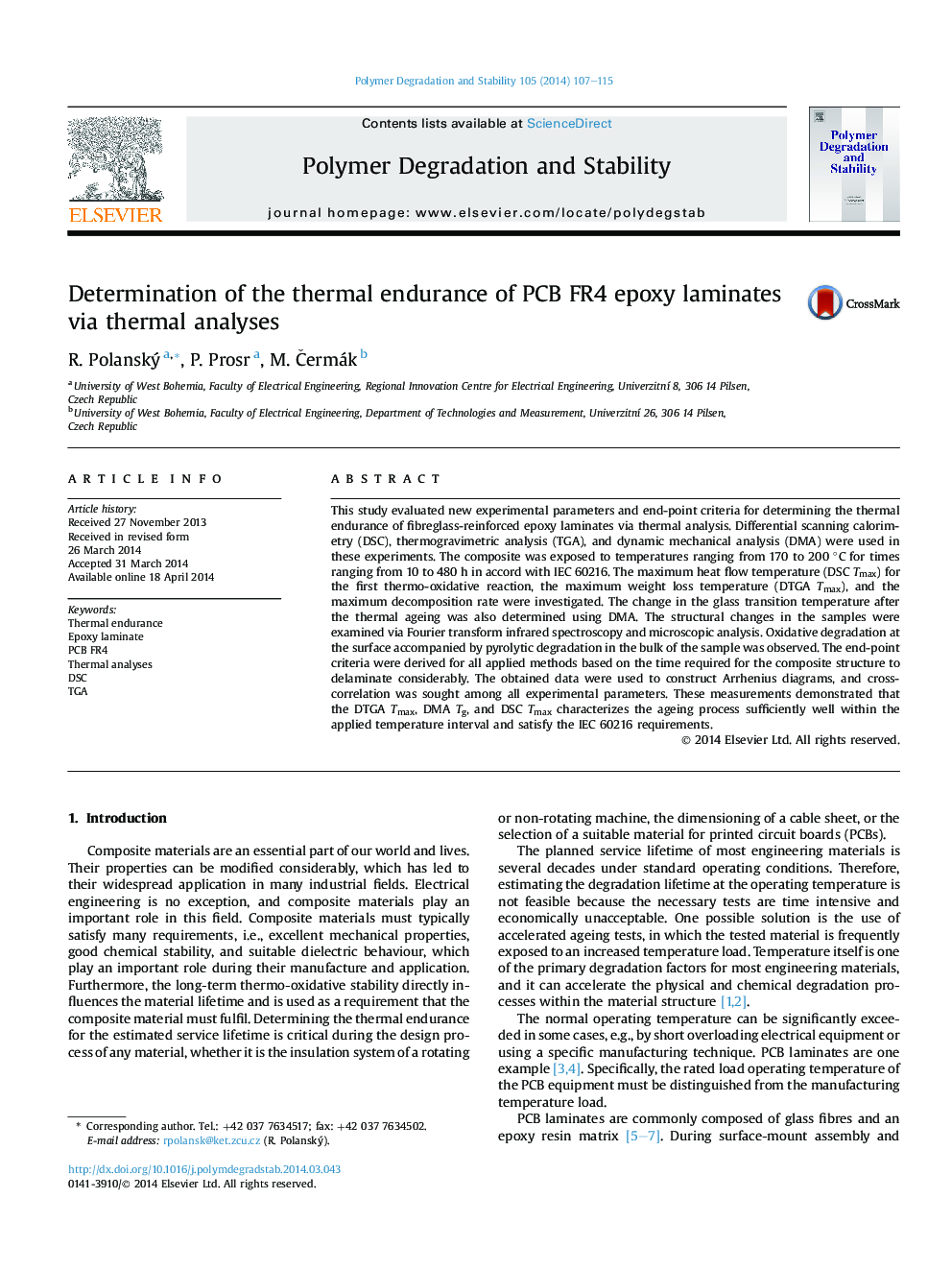| Article ID | Journal | Published Year | Pages | File Type |
|---|---|---|---|---|
| 5201884 | Polymer Degradation and Stability | 2014 | 9 Pages |
Abstract
This study evaluated new experimental parameters and end-point criteria for determining the thermal endurance of fibreglass-reinforced epoxy laminates via thermal analysis. Differential scanning calorimetry (DSC), thermogravimetric analysis (TGA), and dynamic mechanical analysis (DMA) were used in these experiments. The composite was exposed to temperatures ranging from 170 to 200 °C for times ranging from 10 to 480 h in accord with IEC 60216. The maximum heat flow temperature (DSC Tmax) for the first thermo-oxidative reaction, the maximum weight loss temperature (DTGA Tmax), and the maximum decomposition rate were investigated. The change in the glass transition temperature after the thermal ageing was also determined using DMA. The structural changes in the samples were examined via Fourier transform infrared spectroscopy and microscopic analysis. Oxidative degradation at the surface accompanied by pyrolytic degradation in the bulk of the sample was observed. The end-point criteria were derived for all applied methods based on the time required for the composite structure to delaminate considerably. The obtained data were used to construct Arrhenius diagrams, and cross-correlation was sought among all experimental parameters. These measurements demonstrated that the DTGA Tmax, DMA Tg, and DSC Tmax characterizes the ageing process sufficiently well within the applied temperature interval and satisfy the IEC 60216 requirements.
Related Topics
Physical Sciences and Engineering
Chemistry
Organic Chemistry
Authors
R. Polanský, P. Prosr, M. Äermák,
